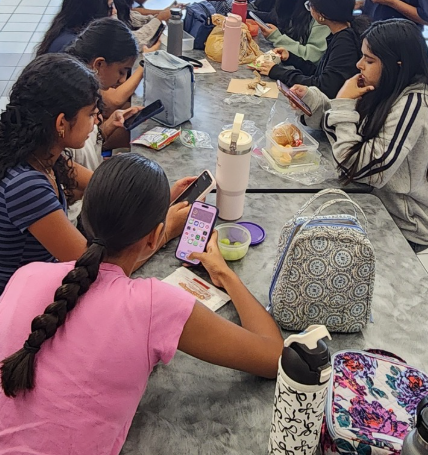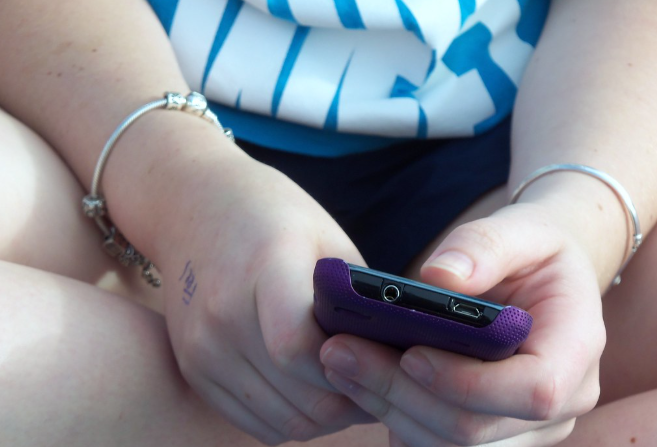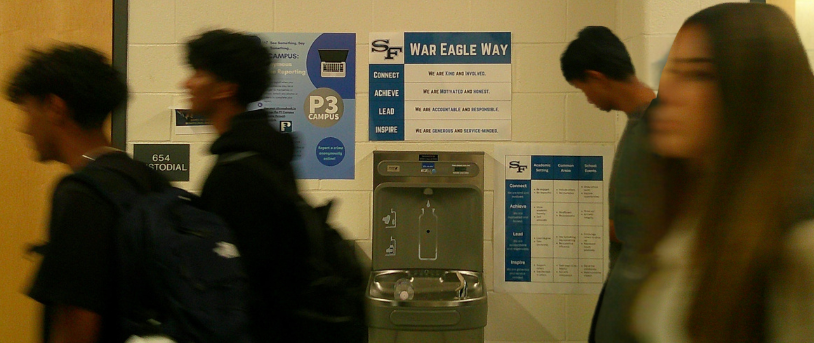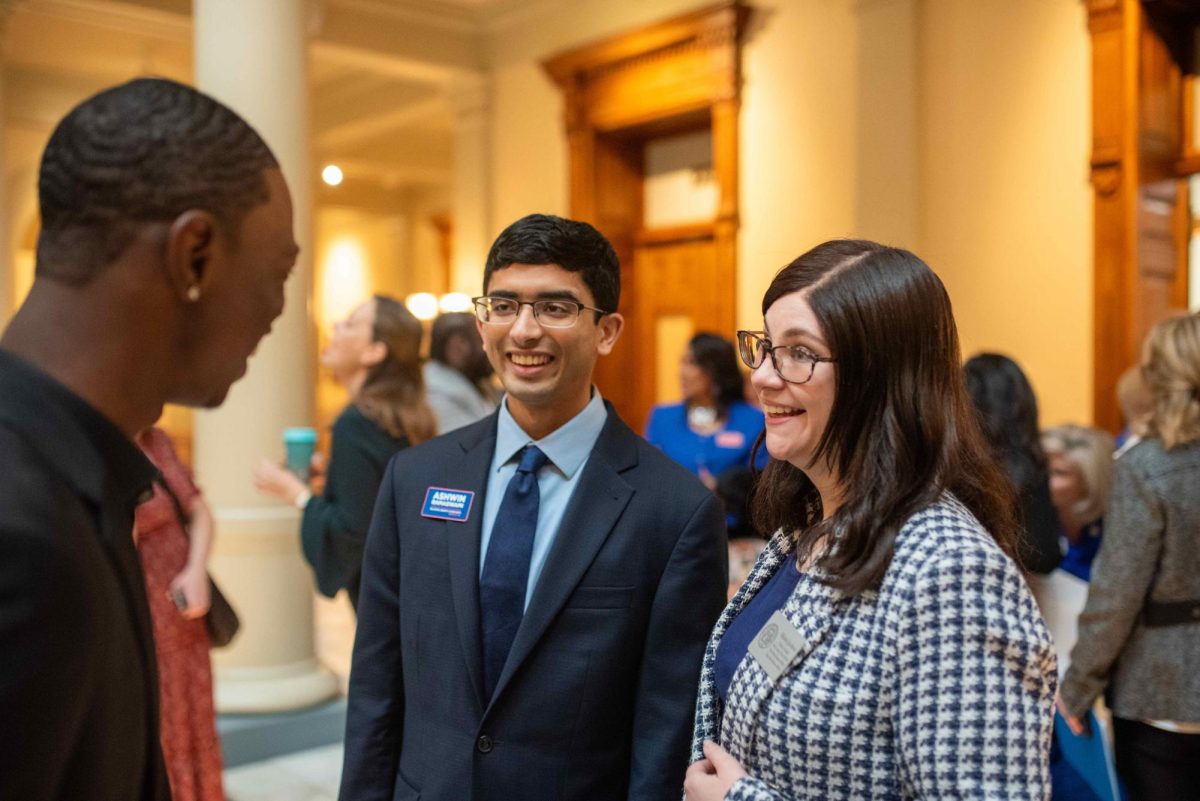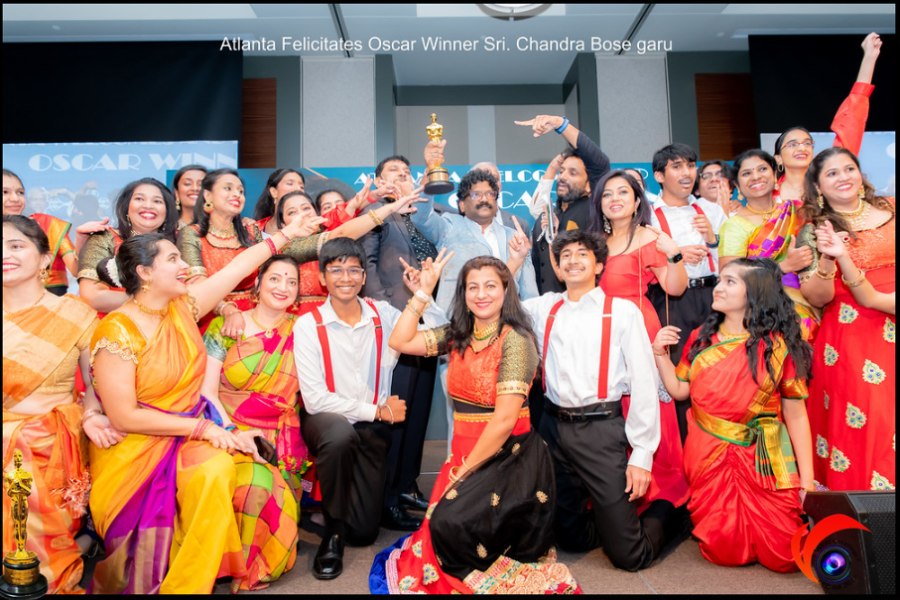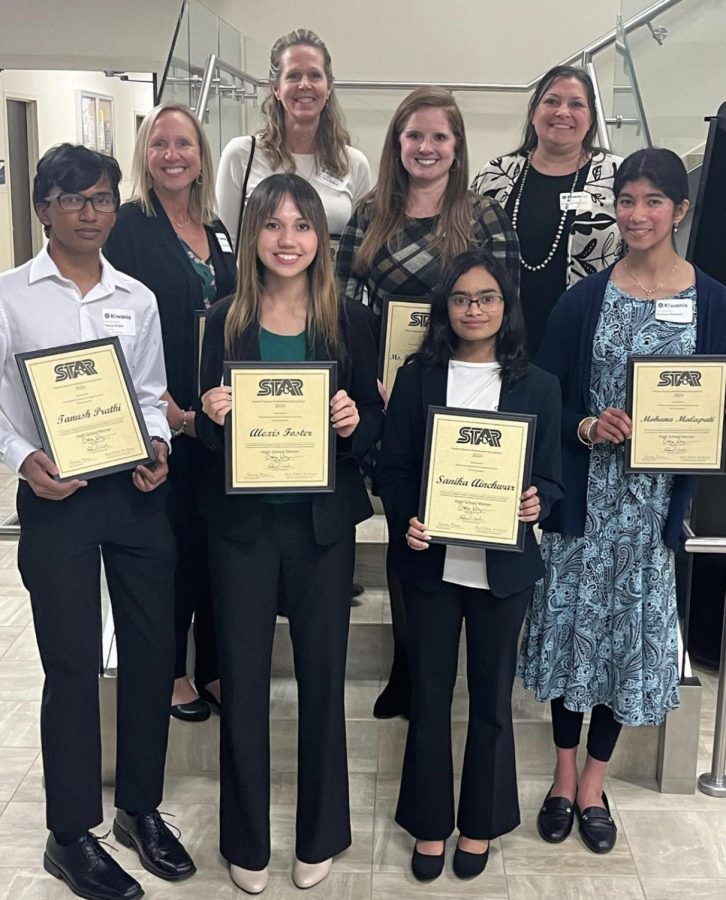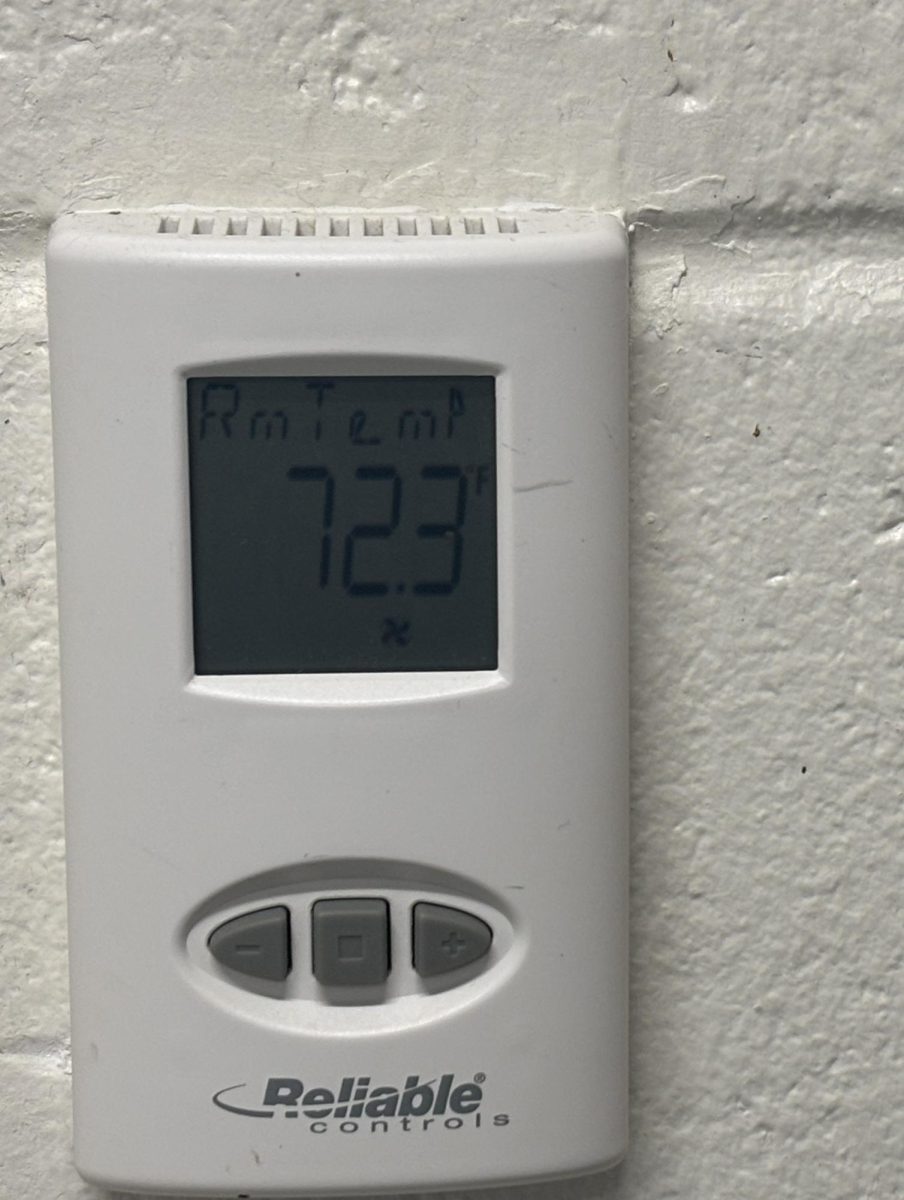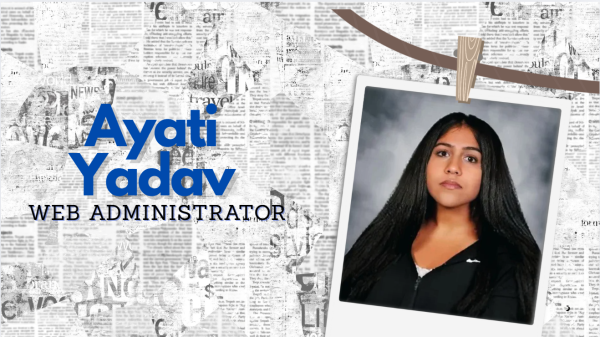In a world revolving around social media, imagine the reality of high school students who are told that their phones and personal devices are strictly banned for the rest of their schooling careers.
This is not a new Netflix survival show. This is the new reality for the students of South Forsyth High School.
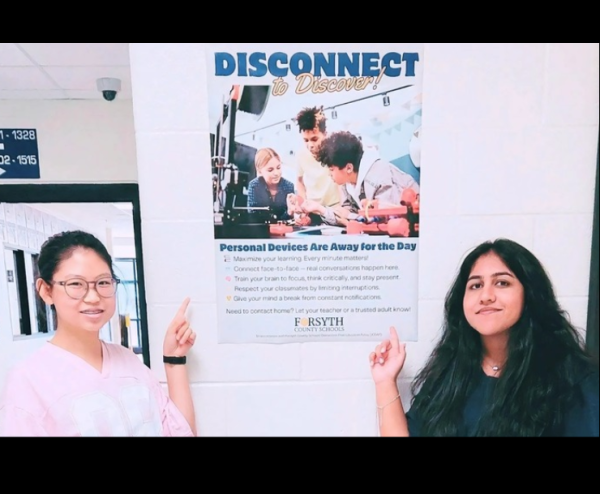
On June 20, 2025, the Forsyth County School Board of Education (FCS BOE) adopted a new Distraction-Free Learning policy, which went into effect for the 2025-26 school year. This prevents students from bringing any personal devices onto school grounds, and only allows them to access phones during lunch periods.
Before we discuss how students and staff are feeling about this new policy, let’s first discuss where it comes from.
Where it all began
“This Act shall be known and may be cited as the ‘Distraction-Free Education Act’” said the Representatives for House Bill 340 on March 4, when it was introduced in the Georgia Chamber. Passed on June 17, the new state law prohibits the use of cellphones in classrooms from kindergarten through eighth grade.
Inspired by the new laws, the FCS BOE passed a measure to ensure these new policies would be clearly communicated and strictly followed by all schools in the county.

But why was phone usage in schools such an issue that it caught the attention of the Georgia Legislature, as well as the FCS BOE? Why would they now put a phone policy, what has changed?
A book that has been gaining popularity recently, “The Anxious Generation” by Jonathan Haidt, has the answer.
“This is the great irony of social media: the more you immerse yourself in it, the more lonely and depressed you become,” Haidt wrote in his book, which has sold over 1 million copies and spent 52 consecutive weeks on the New York Times’ Bestsellers List.
Whether it was due to Covid-19 or just simply the mass adoption of cell phones, adults especially have noticed that students have become less and less connected with each other. In fact, several experienced teachers describe the new generation as “depressed and lonely,” in part as a function of their technology use.
Harvard Public Health’s interpretation of the book found, “The number of kids reporting depression and anxiety rose steadily every year of that decade, till rates were up 134 percent and 106 percent, respectively, by 2020.”
Indeed, many people may associate the rising trend in mental health to be linked to the increased access to technology. Partially due to this rising trend, the phone policy was introduced to Georgia schools in the 2025 fiscal year.
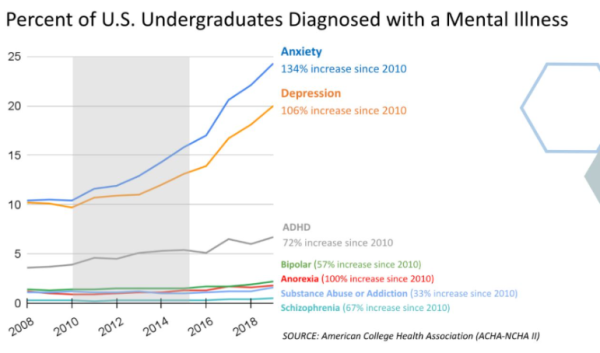
“The goal is to create learning environments free from the distractions of cell phones and personal electronic communication devices [to help] students focus on academics and build positive, in-person relationships [for] their well-being,” said FCS BOE, when outlining their intentions for the new policy.
Students’ opinions
When asked about their opinions on the new policies, students gave varying perspectives, which surprisingly seemed dependent on grade level.
“I’m pretty used to [the new cellphone policy] right now, and I think it’s really helpful because I have been more focused,” said sophomore Kayla.
However, she still has some complaints where the new “no personal devices” policy is concerned.
“I do not like [the no personal devices] policy because I literally just bought a new iPad last year just to bring to school, and now I have an old Chromebook with a faulty mouse pad,” Kayla said. “I have to bring it home to charge it. Why can’t I just charge my personal iPad and bring it to school? It’s not like I’m gonna whip out messages and cheat in front of the teacher.”
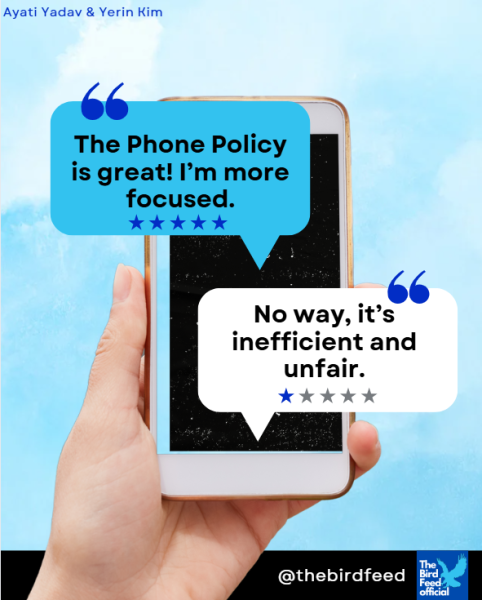
The no personal devices policy has also brought the advent of monitored and blocked sites. Students have raised complaints about the blocking of certain websites that used to serve educational or extracurricular purposes, such as ChatGPT, Gemini, GroupMe, and Seterra.
“I get that ChatGPT can be used for cheating, but it can also be used for educational purposes like making a study guide or questions,” said sophomore Shujin. “So I think that they should add back phones just to help people [access this resource and] exceed more in school.”
Freshmen students, who’ve never been allowed to have their phones during school hours, report being less negatively impacted.
“I wasn’t really affected because we came straight from middle school, so we were never able to have our phones, not even at lunch,” said freshman Nasos. “So for us, [having them at lunch] is still an upgrade.”
Teachers’ talk
Students are not the only ones affected by the new county policy.
“Forsyth County Schools employees are expected to model responsible use of cell phones and
electronic devices during the school day,” said the FCS BOE in the Distraction-Free Act Overview.
“[The phone policy] is something that is both good and bad,” said Vince Reynolds, AP Literature teacher. “I think some teachers are constantly having relatives or whatever contact and it’s kind of good to be like, you know what? I’m gonna put it away and think about my job. I think it’s kind of good in that way, but it’s also worrisome if there is an emergency with our family and we don’t know because the phones are off. That is the issue with teachers.”
Despite the inconvenience, staffers have also noticed potentially positive impacts of the new policy.
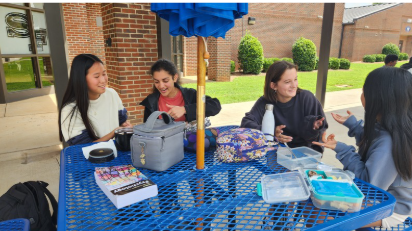
“One thing I’ve noticed is that, walking down the halls, instead of you guys staring at their phones all day, it seems like you’re interacting with each other. [And] I don’t get run over in the hallway,” said Nurse Allee Brown.
Reynolds echoed Brown’s observations of seeing an uptick in socialization among students.
“The biggest thing is that I’ve seen students talk to each other when there’s downtime,” Reynolds said. “There’s very little downtime in my class, but whether it is you have three or four minutes before the bell rings, people are talking, and that is something that really did disappear.”
When further asked, Reynolds mentioned the new conditions in the halls and classrooms remind him of a time before technology was an option.
“It’s kind of hard to have a conversation when people will never pay attention to you or never,” Reynolds said. “The smart phone, when that came out, became a device that people could afford more and everybody has.”
From an observer’s perspective, the easy availability of smartphones was negatively impacting students of all ages, not just the population of South.
“The grades [when] students start getting [a phone] are lower and lower,” Reynold said. “So when kids are playing [on phones] in 5th grade or 4th grade, now we just continue this lifestyle all the way up.”
He also believes that if this policy is continued and improved upon, then it will benefit future classes as well.
Special Cases
Even though the policy is supposed to apply to all students, many individuals aren’t able to fully comply with it due to medical reasons. Certain conditions require technological devices to continuously monitor students’ health levels, such as temperature, insulin, and heart rate.
“Any of our students that have a medical device that needs to connect to their cell phone can [use the device],” said Nurse Allee Brown. “Like our students that have diabetes, a lot of the pumps and things like that are programmed to run with their cell phones, and they can control their insulin through their phones.”
Fortunately, the administration is able to help families and nurses navigate a safe application of the policy on these certain special individuals. Currently, all student personnel with health conditions approved by Admin are allowed to carry a phone specifically and only for health purposes. Though the policy has taken a toll on everyone, administrators are understanding of individuals who struggle with certain issues.
Whether it’s the increased social interaction in schools for students struggling to adapt, the phone policy has strongly transform[ed and changed the atmosphere of South Forsyth High School. Depending on the individual, they either support or do not support the policy through their own unique lenses and perspectives.




